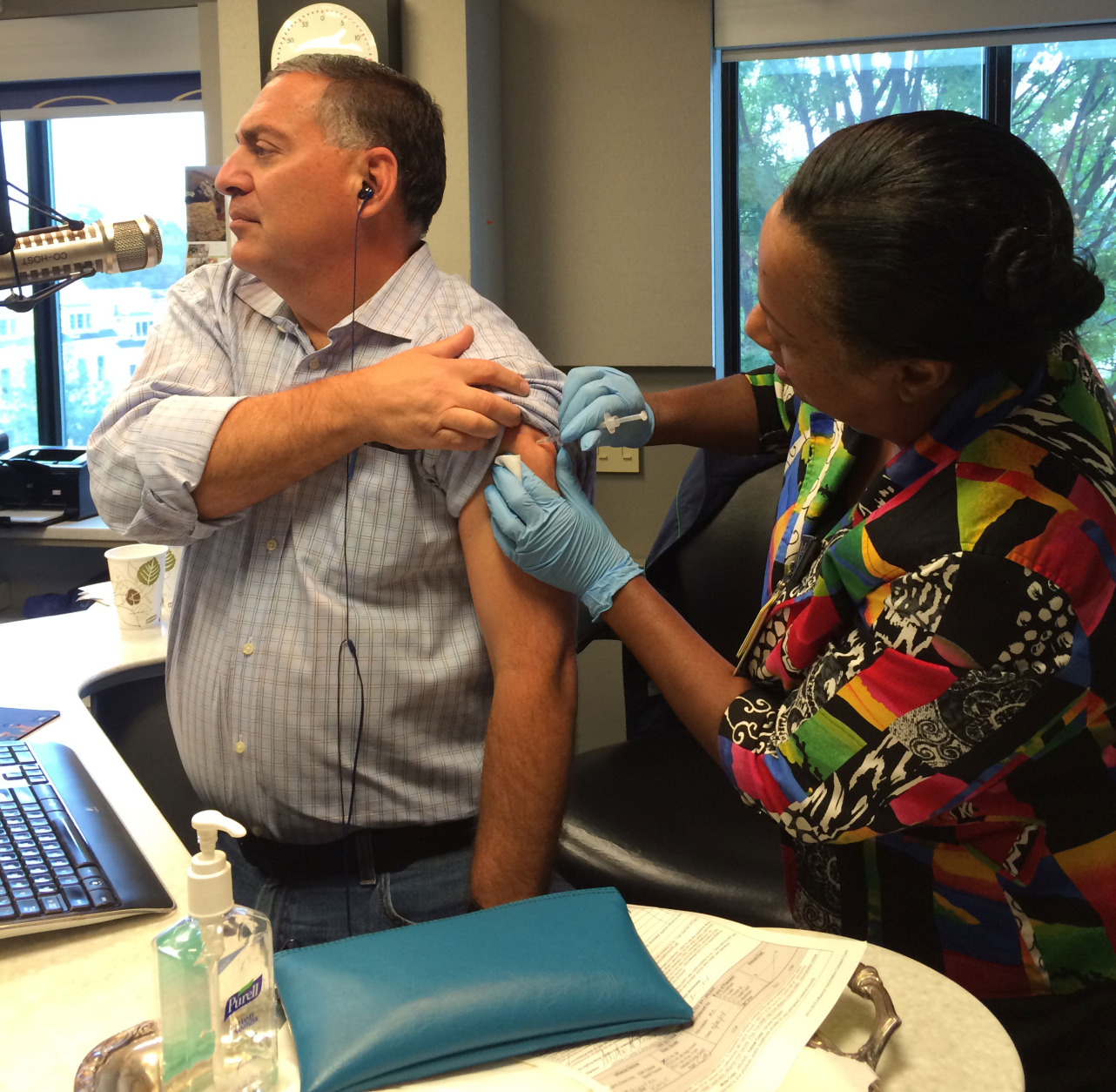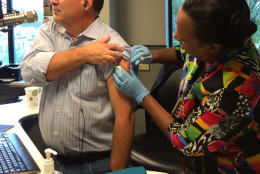

#FREE flu shots till 9:30. Westfield Montgomery Mall. Entrance 4 near Sears. Come on down! #WTOP pic.twitter.com/VfHX1INI7A
— Kristi King (@kingWTOP) October 1, 2014FREE flu shots/adults. Montgomery Mall 7-9:30 at Sears/Macys @AdventistHC @MandT_Bank #WTOP http://t.co/GWgCWDYccM pic.twitter.com/8WAKXYqQWU
— Kristi King (@kingWTOP) October 1, 2014

Want to get a flu shot? Find a flu shot clinic on the Adventist Health Care website.
WASHINGTON — This flu season, the feds have a special request for kids, and a local top doctor wants people to know some vaccines may offer better protection against influenza than others.
The strains of flu chosen to be included in vaccines each year are just a best guess of which strains may prove to be most problematic.
“They don’t always pick perfectly,” says the President of Medical Staff at Shady Grove Adventist Hospital, Dr. Wayne Meyer.
This year, some vaccines include three flu strains, others have four.
“If you can get it — get the one with four strains because you have one extra strain you’re getting covered with,” Meyer says.
If some health care providers don’t have the four-strain version, Meyer says they should be able to either get it upon request or recommend a location where it is stocked.
Also, Meyer prefers nasal spray inoculation for healthy people 2 to 49 years old.
“It’s actually better. It gives you better immunity — if you can get it,” he says.
Nasal spray vaccine is not recommended for people with weakened immune systems because it includes muted but live versions of flu. Injectable vaccines are made with a killed virus. The nasal spray vaccine includes four flu strains.
There are several options when it comes to getting vaccinated: there are shots and nasal spray mists. Higher dose vaccines are available for people 65 years and older. Also, there are injectable vaccines that penetrate only as deep as the skin versus the muscle.
But of all the flu immunization options available this year, the nation’s top doctors have a specific recommendation: healthy children between 2 and 8 years old should get the nasal spray vaccine, according to the Centers for Disease Control and Prevention.
Another universal recommendation is that everyone older than 6 months old get vaccinated, however they chose to do it.
Regardless of how urgently doctors request people try to protect themselves from catching influenza by getting vaccinated, people still are going to get it and spread it.
Safe preventive practices include frequent hand washing and sneezing or coughing into a tissue or sleeve.
When asked to identify a safe distance to keep away from someone who is sneezing or has a hacking cough Meyer jokes, “I’d put a bag over their head and send them home.”
In all seriousness, Meyer says a safe zone is probably 5 or 6 feet away.
“If you have a fever in the morning, you should stay home, unless you like infecting all your co-workers,” Meyer adds.
According to the CDC, flu symptoms include:
- Headache
- Fever or chills
- Extreme tiredness
- Runny or stuffy nose
- Body or muscle aches
- Cough and or sore throat
- Vomiting and Diarrhea is more common in children and adults
To cope with flu symptoms, Meyer doesn’t like to suggest Acetaminophen (Tylenol) because of liver issues. He says aspirin can create issues with some immune conditions especially in children.
“In general, aspirin doesn’t work very well and has too many side effects,” Meyer says.
Meyer recommends people with the flu stay home, rest, drink plenty of fluids and take ibuprofen (Advil) or naproxen (Aleve) as necessary.
Related Stories:
- New study finds pregnant women fight flu virus aggressively, get sicker
- CDC tells healthy adults not to forget flu vaccine
- Flu season starting soon
- Panel: Flu spray better than shots for young kids
Follow @WTOP and @WTOPliving on Twitter and WTOP on Facebook.







